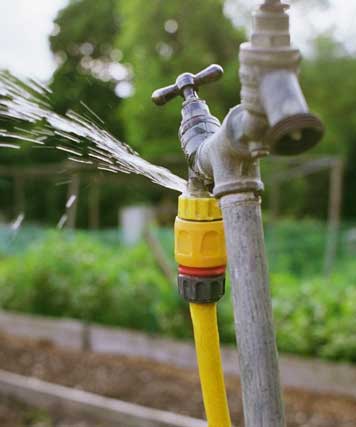Overview To Water Leakage Detection In Your Home
Overview To Water Leakage Detection In Your Home
Blog Article
This great article down below on the subject of Leaking water lines is exceedingly engaging. You should investigate it.

Early discovery of leaking water lines can alleviate a possible catastrophe. In addition to conserving you money, it will decrease the irritation and also aggravation. The minute you locate a leak, calling your plumber for repair services is the most effective solution. Some small water leakages might not be noticeable. If you can not spot it with your nude eyes, below are some hacks that aid.
1. Check Out the Water Meter
Every house has a water meter. Inspecting it is a guaranteed manner in which helps you discover leaks. For starters, shut off all the water sources. Make sure nobody will certainly purge, make use of the tap, shower, run the cleaning equipment or dish washer. From there, go to the meter and watch if it will change. Because nobody is using it, there ought to be no motions. That indicates a fast-moving leak if it relocates. Also, if you identify no changes, wait a hr or two and inspect back once again. This implies you may have a slow leakage that can also be underground.
2. Examine Water Usage
If you find unexpected changes, regardless of your usage being the very same, it indicates that you have leaks in your plumbing system. An abrupt spike in your expense shows a fast-moving leak.
At the same time, a consistent increase each month, despite having the same routines, shows you have a sluggish leakage that's likewise gradually escalating. Call a plumber to completely examine your residential property, especially if you feel a warm location on your flooring with piping below.
3. Do a Food Coloring Test
When it comes to water usage, 30% comes from commodes. If the shade in some way infiltrates your dish during that time without flushing, there's a leak between the tank and bowl.
4. Asses Exterior Lines
Do not forget to examine your exterior water lines as well. Ought to water seep out of the link, you have a loose rubber gasket. One tiny leakage can lose lots of water and spike your water costs.
5. Examine and Assess the Circumstance
Homeowners need to make it a routine to check under the sink counters and also even inside cabinets for any kind of bad odor or mold and mildew growth. These two warnings show a leak so timely focus is required. Doing regular assessments, also bi-annually, can conserve you from a major trouble.
Extra importantly, if you recognize your house is currently old, keep a watchful eye on your heating systems, hose pipes, pipelines etc. Look for discolorations and also compromising as the majority of pipes as well as appliances have a life expectancy. They will certainly also naturally degrade due to tear and use. If you believe leaking water lines in your plumbing system, don't wait on it to rise. Call a professional plumber right now so you do not wind up with a terrible mess in your house.
Early discovery of dripping water lines can mitigate a potential catastrophe. Some small water leaks may not be noticeable. Checking it is a surefire method that assists you find leaks. One small leak can waste lots of water as well as surge your water expense.
If you think leaking water lines in your plumbing system, don't wait for it to escalate.
5 Signs that Your Home Has a Hidden Leak
Your water bill is unusually high without explanation
Generally, your water bill tends to stay consistent throughout the year as long as the same number of people live in your household year round. The bill might be higher during certain times of the year, such as summer, when your lawn may require more watering than it does in cooler months. However, if you notice a rise in your water bill that you can’t explain, it’s an indicator that there’s a hidden leak somewhere in your home.
You hear running water
One of the biggest signs that you have a water leak is the sound of rushing water when no plumbing fixtures are on and when no water-using appliances are running. If you hear running water in your walls when no water is being used anywhere in your home, locate your home’s main water shut-off valve, shut off your water supply, and contact a plumber at once.
Your home smells musty
Hidden leaks often occur in dark spaces, such as behind walls or under carpeting. Incidentally, darkness and moisture can create an ideal breeding environment for mold or mildew. If you start to smell mildew or the scent of rotting wood or stagnant water around your home, it’s a fair bet that a leak is the culprit.
You find wet spots around your home
The wet spots usually show up as moist areas in your carpeting. If your home has a basement level, puddles on the floor could indicate a slab leak. Outside, unexplainable puddles or lush, green patches in your yard often mean that there’s a leak in your sewer line or main water line.
You have stains, bubbles, or condensation on your walls/ceiling
Stains or condensation on your walls or ceiling are both major signs of a hidden leak. Also, drywall (AKA. sheetrock) is very absorbent, and as it takes on more water from a leak behind a wall, it will start to bubble, swell, or warp. If you see this happening in your home, don’t wait to contact a plumber before the water damage spreads.
https://www.ezflowplumbingaz.com/blog/2019/june/5-signs-that-your-home-has-a-hidden-leak/

I was introduced to that editorial about Finding hidden leaks from an acquaintance on our other web page. Sharing is good. Who knows, you may very well be helping someone out. We enjoy reading our article about Top leak detection hacks.
Report this page